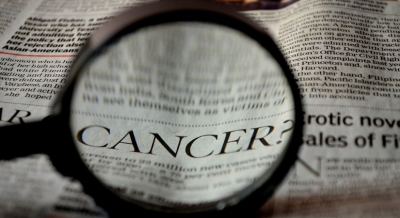LONDON:
A team of UK researchers have discovered a ‘treasure trove‘ of 58 new mutational signatures that provide clues about the causes of cancer.
In the biggest study of its kind, a team of scientists led by Professor Serena Nik-Zainal from Cambridge University Hospitals (CUH) and University of Cambridge, analysed the complete genetic make-up or whole-genome sequences of more than 12,000 NHS cancer patients.
The researchers were able to detect patterns in the DNA of cancer or mutational signatures that provide clues about whether a patient has had a past exposure to environmental causes of cancer such as smoking or UV light, or has internal or cellular malfunctions.
In the study, published in the journal Science, the team were also able to spot 58 new mutational signatures, suggesting that there are additional causes of cancer that we don’t yet fully understand.
“Whole genome sequencing gives us a total picture of all the mutations that have contributed to each person’s cancer. With thousands of mutations per cancer, we have unprecedented power to look for commonalities and differences across NHS patients, and in doing so we uncovered 58 new mutational signatures and broadened our knowledge of cancer,” said first author Dr Andrea Degasperi, research associate at the University of Cambridge.
The team also created FitMS, a computer-based tool to help scientists and clinicians identify old and new mutational signatures in cancer patients, to potentially inform cancer management more effectively.
Previously, scientists had been aware of just 51 mutational signatures, including changes caused by smoking or UV light.
Identifying the new signatures will also allow doctors to look at each patient’s tumor and match it to specific treatments and medications.
However, the patterns can only be detected in cancer patients who have had their whole genome sequenced by scientists which isn’t routinely done, the researchers said.
According to Serena Nik-Zainal, Professor of genomic medicine and bioinformatics at the University, the mutational signatures are “like fingerprints at a crime scene”.
“Some mutational signatures have clinical or treatment implications they can highlight abnormalities that may be targeted with specific drugs or may indicate a potential ‘Achilles heel’ in individual cancers, Nik-Zainal said.
Meanwhile, in a separate study, researchers at the University of Alberta in Canada showed that cancer is not as heritable or purely genetic as once thought.
Cancer is genetic, but often the mutation itself isn’t enough. As cancer develops and spreads in the body, it creates its own environment and introduces certain metabolites. It becomes a self-fueled disease. And that’s where cancer, as a metabolic disorder, becomes really important, the team explained in the journal Metabolites. IANS


